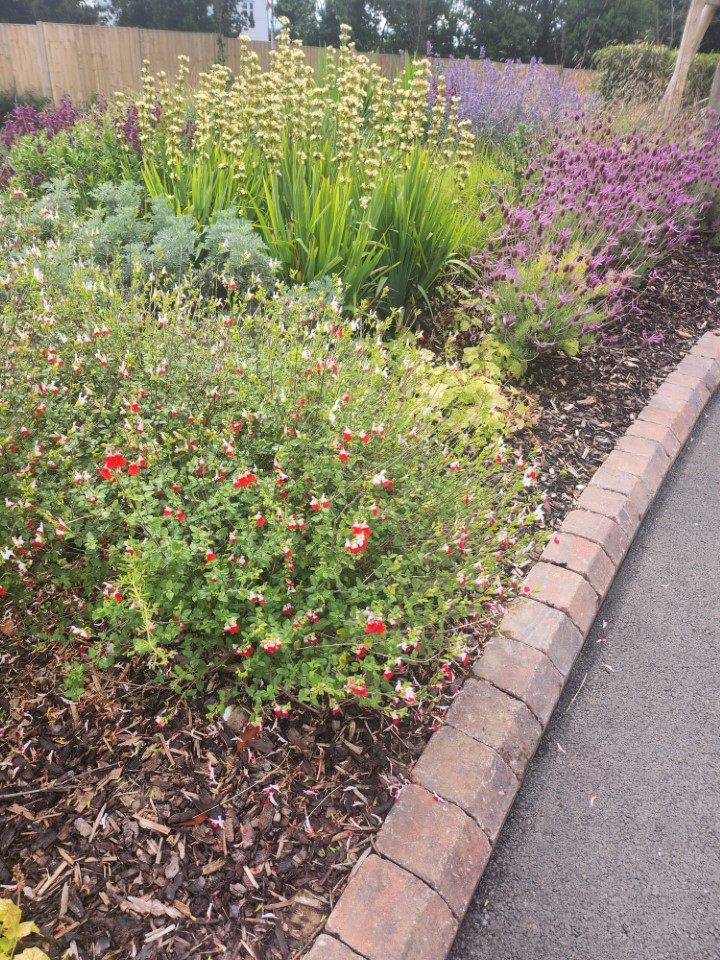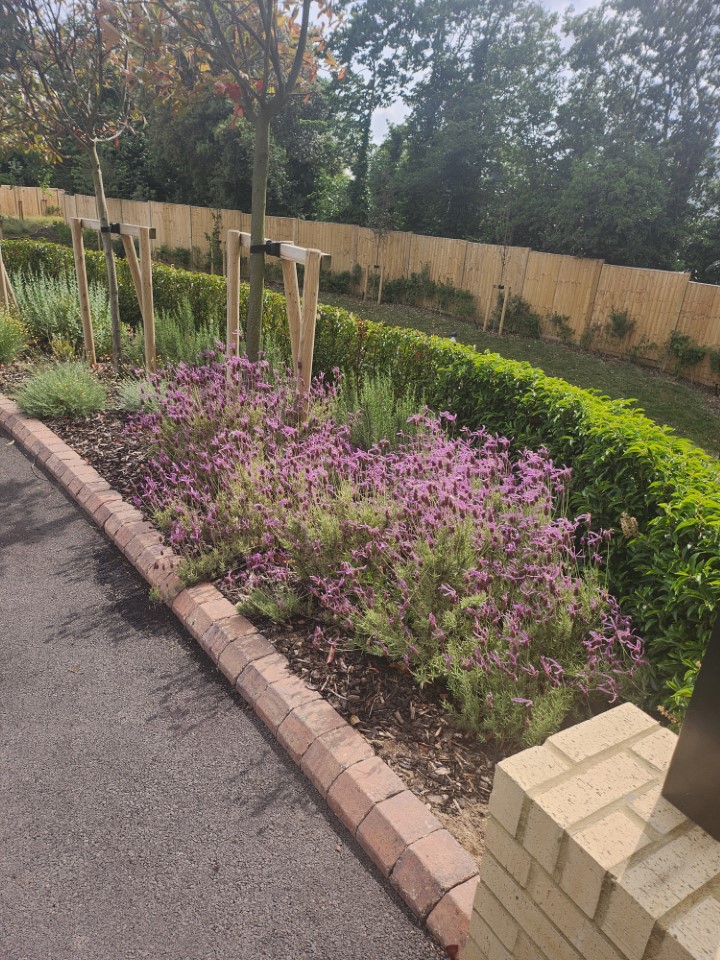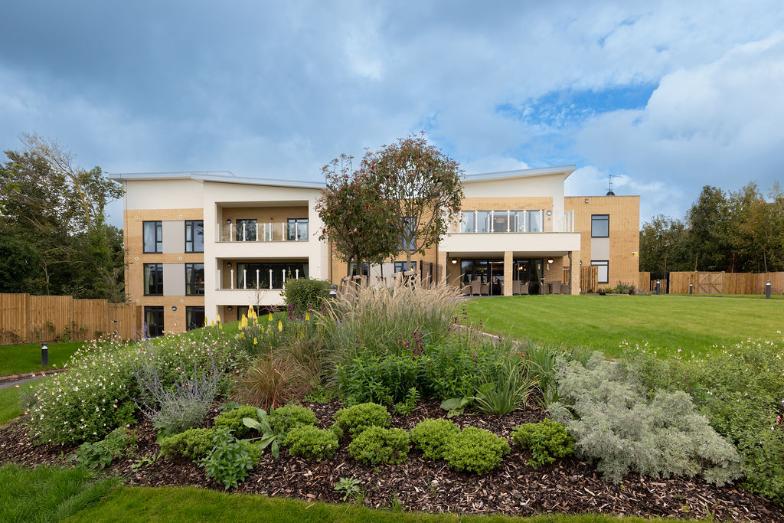Gardening in Care Homes and Its Impact on Wellbeing

Gardening is more than just planting flowers and watering pots, it's a powerful and proven way to enhance wellbeing, support physical and mental health, and bring joy to daily life. For residents in care homes, having access to green spaces and gardening activities can make a remarkable difference to their quality of life.
In Kent, famously referred to as The Garden of England, the link between nature and wellness is deeply rooted in the landscape, and Sandmere Care Home is no exception. With beautifully maintained outdoor areas, potting sheds, and greenhouses, the home offers residents the opportunity to reconnect with nature, rediscover old hobbies, and experience the many benefits of gardening firsthand.


A Natural Boost to Physical and Mental Health
Gardening might seem like a gentle pastime, and that’s precisely why it’s so beneficial. It encourages older adults to stay active without overexertion, offering low-impact movement that supports overall health.
Physical benefits include:
- Improving mobility and joint flexibility through simple movements like digging or pruning
- Enhancing fine motor skills by handling tools and planting seeds
- Increasing exposure to natural sunlight, which helps regulate sleep and boosts vitamin D levels
- Promoting cardiovascular health through light aerobic activity
But the benefits of gardening go far beyond the physical. It has a powerful effect on mental and emotional wellbeing too. Numerous studies have shown that engaging with nature can reduce stress, anxiety, and depression. For care home residents, this can help foster a greater sense of calm, purpose, and contentment.
Mental and emotional benefits include:
- Reduced stress levels and improved mood
- Lower risk of depression and feelings of loneliness
- A sense of achievement and purpose from nurturing living things
- Increased self-esteem and confidence


The Benefits of Gardening for Dementia
One of the most significant benefits of gardening in care homes is its therapeutic impact on people living with dementia. The sensory nature of gardening - the textures, scents, sounds, and colours - helps stimulate the senses and can trigger long-term memories. This can be particularly comforting for individuals with memory loss, as familiar activities from the past resurface.
Gardening also offers structure and predictability, which can reduce agitation and confusion. Repetitive tasks like watering, planting, or tidying up flower beds can be soothing and provide a sense of routine.
Dementia-specific benefits include:
- Stimulating memory recall through familiar tasks and natural stimuli
- Creating a calming environment that reduces anxiety and restlessness
- Offering a safe, enclosed space for free movement and exploration
- Encouraging communication, even for those who struggle with verbal expression
- Supporting cognitive function through decision-making and planning
At Sandmere Care Home, staff are committed to creating inclusive gardening activities for all residents, including those living with dementia. The secure gardens and accessible layouts of potting sheds and greenhouses make it easy for everyone to participate - whether it’s watering herbs, picking tomatoes, or simply sitting in a sun-dappled corner listening to birdsong.
Social and Emotional Benefits of Gardening
Gardening is also a deeply social activity. From chatting with others while planting flower beds to taking part in seasonal garden clubs, it creates natural opportunities for conversation, collaboration, and friendship.
In care homes, where residents may be at risk of isolation, gardening helps build a sense of community. Group projects like creating a butterfly garden, planting vegetables, or growing sunflowers can be incredibly rewarding and encourage residents to work together toward a common goal.
Social benefits of gardening in care homes include:
- Reducing loneliness and encouraging companionship
- Helping residents bond over shared interests or past experiences
- Providing a space to relax and chat in a non-clinical, calming environment
- Strengthening relationships between residents, staff, and even visiting family members


Reconnecting with Identity and Independence
Gardening can help residents reconnect with who they are. For many older adults, tending a garden was once a beloved hobby or even a part of daily life. Being able to return to this familiar activity brings comfort, identity, and a sense of normality.
In care homes, where daily routines can often be limited by health conditions or schedules, having control over a personal patch of soil - even a single plant pot - gives residents a feeling of independence. It's empowering to decide what to plant, how to arrange it, and when to water it.
Whether it’s growing strawberries in a raised bed, sprucing up a herb garden, or arranging cut flowers from the greenhouse, gardening allows residents to create something of their own - something they can be proud of.
The Garden of England: A Perfect Setting
Sandmere Care Home in Kent is ideally placed to make the most of the natural beauty around it. With a mild climate and a rich gardening tradition, Kent offers fertile ground for all types of plants - from roses to runner beans.
Known as The Garden of England, Kent has long been celebrated for its orchards, gardens, and countryside. This spirit is reflected in the approach at Sandmere, where gardens are not just a backdrop, but a vital part of daily life.
The home's grounds feature a mix of manicured spaces and natural corners, with potting sheds, greenhouses, and areas where residents can engage as much or as little as they like. The team at Sandmere are passionate about using these spaces to enrich residents’ lives, offering everything from seasonal planting activities to relaxed time spent outdoors. Chat to our friendly team today to learn more about life at Sandmere Care Home or book a tour to see the gardens and facilities for yourself.






